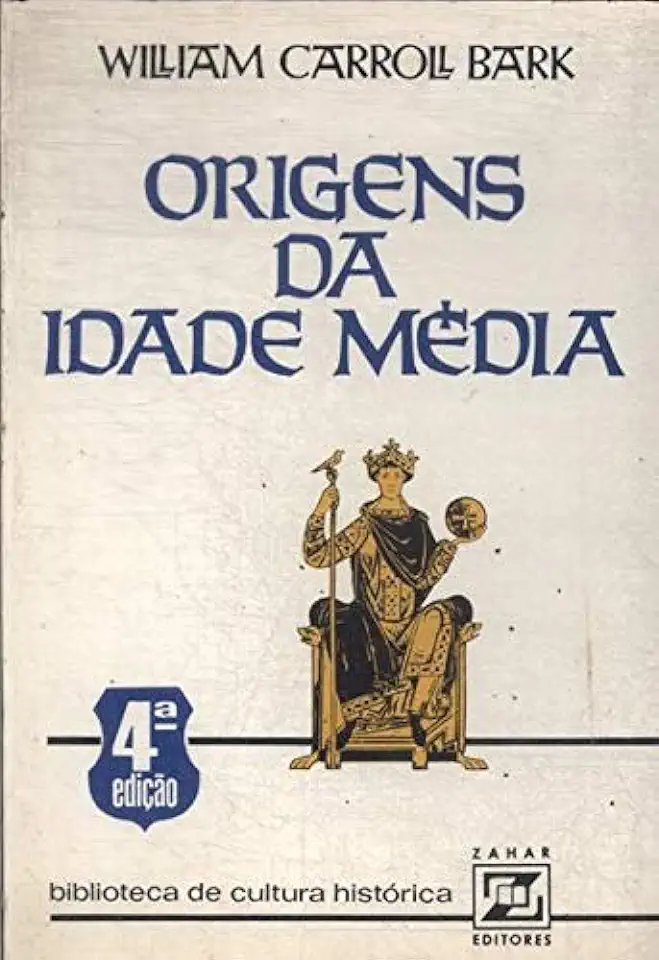
Origins of the Middle Ages - William Carroll Bark
Origins of the Middle Ages: A Comprehensive Guide to the Transformation of Europe
Introduction: Unveiling the Enigmatic Era
In the vast tapestry of human history, the Middle Ages stand as a period of profound transformation, a crucible of change that shaped the very foundations of modern civilization. From the collapse of the Roman Empire to the dawn of the Renaissance, this era witnessed the rise and fall of empires, the birth of new nations, and the emergence of groundbreaking ideas that would forever alter the course of humanity.
The Fall of Rome: A Catalyst for Change
The decline and eventual collapse of the Roman Empire, once the mightiest power in the ancient world, marked the beginning of the Middle Ages. This cataclysmic event triggered a chain reaction of political, social, and cultural upheavals that would reshape the landscape of Europe for centuries to come.
The Rise of Christianity: A New Spiritual Order
Amidst the chaos and uncertainty of the post-Roman world, Christianity emerged as a beacon of hope and unity. The spread of this new faith brought with it a profound shift in religious beliefs and practices, transforming the spiritual landscape of Europe and laying the groundwork for the development of medieval society.
Barbarian Invasions: A Clash of Cultures
The collapse of the Roman Empire left a power vacuum that was quickly filled by a wave of Germanic tribes from northern Europe. These so-called "barbarians" brought with them their own customs, languages, and traditions, leading to a clash of cultures that would shape the course of medieval history.
Feudalism: A New Social Order
In the aftermath of the barbarian invasions, a new social structure emerged in Europe: feudalism. This system of decentralized power, based on land ownership and military service, would become the defining feature of medieval society, shaping the relationships between lords, vassals, and serfs.
The Crusades: A Quest for Holy Land
The Middle Ages were marked by a series of religious wars known as the Crusades. These expeditions, launched by European Christians to reclaim the Holy Land from Muslim control, had a profound impact on both Europe and the Middle East, leading to cultural exchanges, conflicts, and the rise of new political powers.
The Black Death: A Devastating Pandemic
In the mid-14th century, Europe was struck by a devastating pandemic known as the Black Death. This bubonic plague killed millions of people, leading to widespread social, economic, and religious upheaval. The Black Death left an indelible mark on medieval society, prompting profound changes in art, literature, and the way people viewed life and death.
The Renaissance: A New Dawn
The Middle Ages gradually gave way to the Renaissance, a period of renewed interest in classical learning and culture. This intellectual and artistic movement marked the beginning of a new era, characterized by a renewed focus on humanism, scientific inquiry, and the pursuit of knowledge.
Conclusion: A Legacy of Enduring Influence
The Middle Ages were a time of profound change and transformation, a period that laid the groundwork for the modern world. From the fall of Rome to the rise of Christianity, from feudalism to the Crusades, from the Black Death to the Renaissance, this era shaped the political, social, cultural, and religious landscape of Europe and beyond.
Origins of the Middle Ages is an essential guide to this fascinating period of history, offering a comprehensive exploration of the events, ideas, and people that shaped the medieval world. With its engaging narrative and wealth of insights, this book is a must-read for anyone seeking to understand the origins of our modern world.